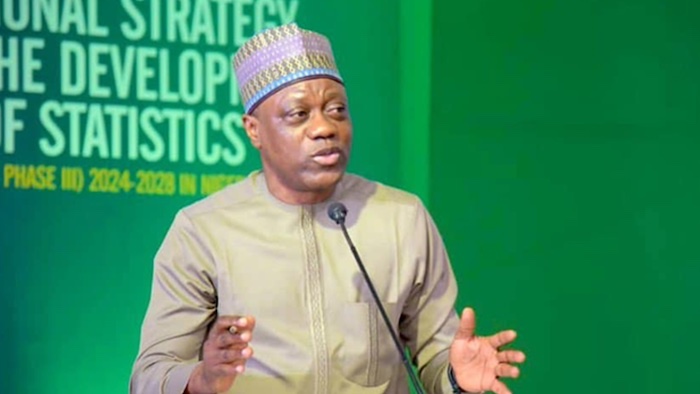On Thursday, Prince Semiu Adeniran, Statistician-General of the Federation and Chief Executive of the National Bureau of Statistics (NBS), announced that the agency has initiated the rebasing of Nigeria’s Gross Domestic Product (GDP) and Consumer Prices Index (CPI). This comes nearly a decade after the last rebasing exercise in 2014.
Rebasing Process and Stakeholder Involvement
Speaking at a sensitization workshop for stakeholders, Adeniran emphasized the importance of accurate and timely data in today’s rapidly changing global economy. The workshop aims to inform and engage critical stakeholders, seeking their feedback and support to ensure the rebasing exercise meets the needs of all data users and provides a clearer understanding of Nigeria’s economy.
Routine Statistical Practice and Challenges
Adeniran noted that while such rebasing exercises should ideally be routine and straightforward, they have become more pronounced due to delays and irregularities in major statistical activities in Nigeria. The informal nature of the Nigerian economy adds complexity to data collection efforts, making the rebasing process even more significant.
Economic Shifts Since the Last Rebasing
Former Chief Executive of National Planning, Ode Ojowu, highlighted significant structural changes in Nigeria’s economy since the last rebasing in 2014. These changes include the rise of fintech, e-commerce, and digital services, advancements in agriculture and renewable energy, and the growth of Nollywood and the music industry. Additionally, urbanization and infrastructure development have increased the value of real estate.
Impact on Macroeconomic Indicators
Ojowu explained that rebasing the GDP would alter current macroeconomic indicators, which are critical for government policymaking. For instance, the 2014 rebasing significantly changed financial indicators, such as private sector credit to GDP and broad money supply to GDP. These changes impacted fiscal deficit ratios and debt stock-to-GDP ratios, which have since fluctuated dramatically.
Policy Implications and Future Considerations
Ojowu cautioned that while an increased GDP size post-rebasing might improve Nigeria’s standing as Africa’s largest economy, it’s crucial to examine the GDP’s composition and its impact on employment, income generation, and revenue creation. He urged the government to be mindful of fiscal stability and avoid expanding debt or increasing taxes merely to improve GDP ratios.
The NBS’s rebasing of Nigeria’s GDP and CPI is a critical exercise aimed at providing a more accurate reflection of the country’s economic conditions. This process, involving extensive stakeholder collaboration, is expected to offer valuable insights into Nigeria’s economic structure and inform future policy decisions.
